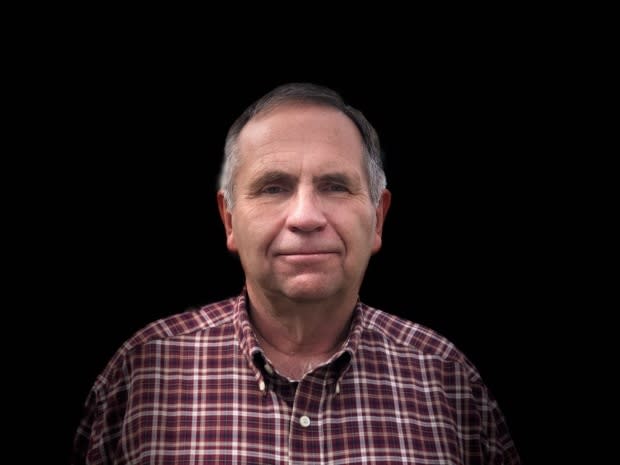'I'm not in ...some Third World place': Bladder cancer patients face ongoing scarcity of life-saving drug
Canadians with bladder cancer will know this fall whether Health Canada will approve a second supplier of a life-saving drug that is being rationed as a worldwide shortage drags on.
BCG, or bacillus Calmette-Guérin, is an immunotherapy that involves injecting bacteria into the bladder through a catheter, triggering the immune system to attack the cancer.
It is considered the best defence against the most common form of bladder cancer (non-invasive bladder cancer) and in many cases it can eliminate the disease altogether.
Canada's only supplier, Merck, is now projecting the shortage will last until December 2020 — more than a year longer than originally anticipated.
Since November 2018, 100 Albertans — and many others across the country — have had their doses of BCG cut by two-thirds in an effort to conserve supplies. According to Alberta Health Services, those patients continue to have their treatments reduced.
"You just think I'm in Canada. I'm not in ...some Third World place. How can that even be possible?" said Brad Hornseth, an Edmonton man who was diagnosed with non-invasive bladder cancer in the summer of 2018.
After receiving the full amount of BCG during his first treatment, Hornseth's follow-up doses were cut by two-thirds.
"I still have that feeling that in spite of their assurance that a third of the dose is just as effective, it just adds another layer of worry for me," he said.
Calls for second supplier mount
According to Bladder Cancer Canada, 12,000 Canadians are diagnosed with the disease every year and the national advocacy group has been calling on Health Canada to bring on a second supplier for two years.
"Ensuring that we have supply of that proper treatment is critical to our patient community," said Ferg Devins, a bladder cancer survivor and volunteer chair of Bladder Cancer Canada. The group first started speaking out about the issue during a previous shortage in 2014.
"BCG certainly worked for me and it's worked for tens of thousands of patients," said Devins. "Being dependent on a single supplier is...concerning."

Health Canada reviews proposal
Verity Pharmaceuticals, a Canadian company focused on supplying drugs that have been pulled from the Canadian market or those that are in short supply, wants to import another strain of BCG into Canada. The company says the strain says is already being used to address shortages in countries such as Spain, Australia, the United Kingdom and Switzerland.
Verity submitted a proposal to Health Canada in December 2018 and the drug, which is produced by the Serum Institute of India, is now under review by the department.
"There's a lot of anxiety and there has been over the last number of years," said Dr. Neil Fleshner, chief medical officer of Verity Pharmaceuticals and urological oncologist at Toronto's Princess Margaret Cancer Centre.
"Even reducing it to one-third, there's still not enough. There's true rationing in the sense that we get delays. We get a few vials. We put patients on hold until the vials arrive. It's a very unsettling situation," he said.
According to Fleshner, if Verity gets the greenlight it would be able to provide enough BCG to eliminate the shortage in the Canadian market and the drugs could be available by spring 2020.
"The problem will be solved if and when approval is secured," said Fleshner.
Decision coming this fall
For its part, Health Canada says its aware that Merck Canada is now predicting the shortage will last another year and says the company expects to fulfil between 75 per cent and 100 per cent of the monthly demand.
In a statement emailed to CBC News, a spokesperson says Verity's submission is under review and the department expects to make a decision about whether it will approve the drug this fall — after it has completed a "thorough evaluation of the scientific evidence to support the quality, safety and effectiveness of the product."
"The Department is closely monitoring this shortage and will continue to take action, as needed and in collaboration with provinces and territories and stakeholders, to help mitigate the impact on patients," said the statement.
For Hornseth, the wait has been long and frustrating.
"Just the knowledge that you might not get enough treatment and it might not come back, that wears me down every day," he said.
Hornseth, who was declared cancer-free in July, worries about the long-term implications of being on a lower dose of his life-saving drug and says Health Canada's decision can't come soon enough.
"It would just take a whole layer of worry away because would feel that 'OK, now I'm getting the treatment that I'm supposed to get.'"

